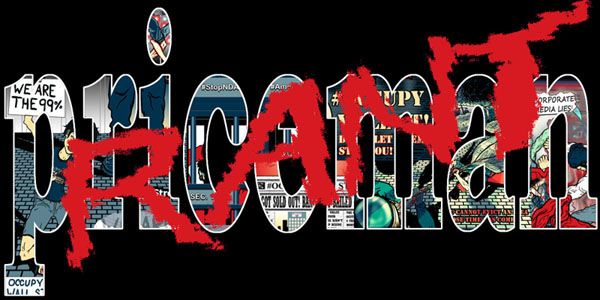This is your morning Open Thread. Pour your favorite beverage and review the past and comment on the future.
Find the past “On This Day in History” here.
March 7 is the 66th day of the year (67th in leap years) in the Gregorian calendar. There are 299 days remaining until the end of the year.
On this day in 1965, a group of 600 civil rights marchers are forcefully broken up in Selma, Alabama. This day would be remembered in the Civil Rights Movement as “Bloody Sunday”
The Selma to Montgomery marches were three marches in 1965 that marked the political and emotional peak of the American civil rights movement. They grew out of the voting rights movement in Selma, Alabama, launched by local African-Americans who formed the Dallas County Voters League (DCVL). In 1963, the DCVL and organizers from the Student Nonviolent Coordinating Committee (SNCC) began voter-registration work. When white resistance to Black voter registration proved intractable, the DCVL requested the assistance of Martin Luther King, Jr. and the Southern Christian Leadership Conference, who brought many prominent civil rights and civic leaders to support voting rights.
The first march took place on March 7, 1965 – “Bloody Sunday” – when 600 civil rights marchers were attacked by state and local police with billy clubs and tear gas. The second march took place on March 9. Only the third march, which began on March 21 and lasted five days, made it to Montgomery, 51 miles away.
The marchers averaged 10 miles a day along U.S. Route 80, known in Alabama as the “Jefferson Davis Highway”. Protected by 2,000 soldiers of the U.S. Army, 1,900 members of the Alabama National Guard under Federal command, and many FBI agents and Federal Marshals, they arrived in Montgomery on March 24, and at the Alabama Capitol building on March 25.
The route is memorialized as the Selma To Montgomery Voting Rights Trail, a U.S. National Historic Trail.
Selma essentially became the focus the right to vote marches because it was the seat of Dallas County, AL that although it has a black population of 57% with 15,000 blacks elegible to vote, there were only 130 registered. Efforts to register voters were blocked by state and local officials, the White Citizens’ Council, and the Ku Klux Klan, using a literacy test, economic pressure, and violence.
On July 2, 1964, President Lyndon B. Johnson signed the Civil Rights Act of 1964 into law, which declared segregation illegal, yet Jim Crow remained in effect. When attempts to integrate Selma’s dining and entertainment venues were resumed, blacks who tried to attend the movie theater and eat at a hamburger stand were beaten and arrested.
On July 6, John Lewis led 50 blacks to the courthouse on registration day, but Sheriff Clark arrested them rather than allow them to apply to vote. On July 9, Judge James Hare issued an injunction forbidding any gathering of three or more people under the sponsorship of civil rights organizations or leaders. This injunction made it illegal to even talk to more than two people at a time about civil rights or voter registration in Selma, suppressing public civil rights activity there for the next six months.
With civil rights activity blocked by Judge Hare’s injunction, the DCVL requested the assistance of King and the Southern Christian Leadership Conference (SCLC). Three of SCLC’s main organizers – Director of Direct Action and Nonviolent Education James Bevel, Diane Nash, and [http://en.wikipedia.org/wiki/James_Orange James Orang, who had been working on Bevel’s Alabama Voting Rights Project since late 1963, a project which King and the executive board of SCLC had not joined. When SCLC officially accepted Amelia Boynton’s invitation to bring their organization to Selma, Bevel, Nash, Orange and others in SCLC began working in Selma in December 1964. They also worked in the surrounding counties along with the SNCC staff who had been active there since early 1963.
The Selma Voting Rights Movement officially started on January 2, 1965, when King addressed a mass meeting in Brown Chapel in defiance of the anti-meeting injunction.
Over the following weeks, SCLC and SNCC activists expanded voter registration drives and protests in Selma and the adjacent Black Belt counties. In addition to Selma, marches and other protests in support of voting rights were held in Perry, Wilcox, Marengo, Greene, and Hale counties.
On February 18, 1965, an Alabama State Trooper, corporal James Bonard Fowler, shot Jimmie Lee Jackson as he tried to protect his mother and grandfather in a café to which they had fled while being attacked by troopers during a nighttime civil rights demonstration in Marion, the county seat of Perry County. Jackson died eight days later, of an infection resulting from the gunshot wound, at Selma’s Good Samaritan Hospital.
In response, James Bevel called for a march from Selma to Montgomery.
Bevel’s initial plan was to march to Montgomery to ask Governor George Wallace if he had anything to do with ordering the lights out and the state troopers to shoot during the march in which Jackson was killed. Bevel called the march in order to focus the anger and pain of the people of Selma, some of whom wanted to address Jackson’s death with violence, towards a nonviolent goal. The marchers also hoped to bring attention to the violations of their rights by marching to Montgomery. Dr. King agreed with Bevel’s plan, and asked for a march from Selma to Montgomery to ask Governor Wallace to protect black registrants.
Wallace denounced the march as a threat to public safety and declared he would take all measures necessary to prevent this from happening.
The First March: “Bloody Sunday”
On March 7, 1965, 525 to 600 civil rights marchers headed east out of Selma on U.S. Highway 80. The march was led by John Lewis of SNCC and the Reverend Hosea Williams of SCLC, followed by Bob Mants of SNCC and Albert Turner of SCLC. The protest went smoothly until the marchers crossed the Edmund Pettus Bridge and found a wall of state troopers waiting for them on the other side. Their commanding officer told the demonstrators to disband at once and go home. Williams tried to speak to the officer, but the man curtly informed him there was nothing to discuss. Seconds later, the troopers began shoving the demonstrators. Many were knocked to the ground and beaten with nightsticks. Another detachment of troopers fired tear gas. Mounted troopers charged the crowd on horseback.
Brutal televised images of the attack, which presented people with horrifying images of marchers left bloodied and severely injured, roused support for the U.S. civil rights movement. Amelia Boynton was beaten and gassed nearly to death; her photo appeared on the front page of newspapers and news magazines around the world Seventeen marchers were hospitalized, leading to the naming of the day “Bloody Sunday”.







Recent Comments